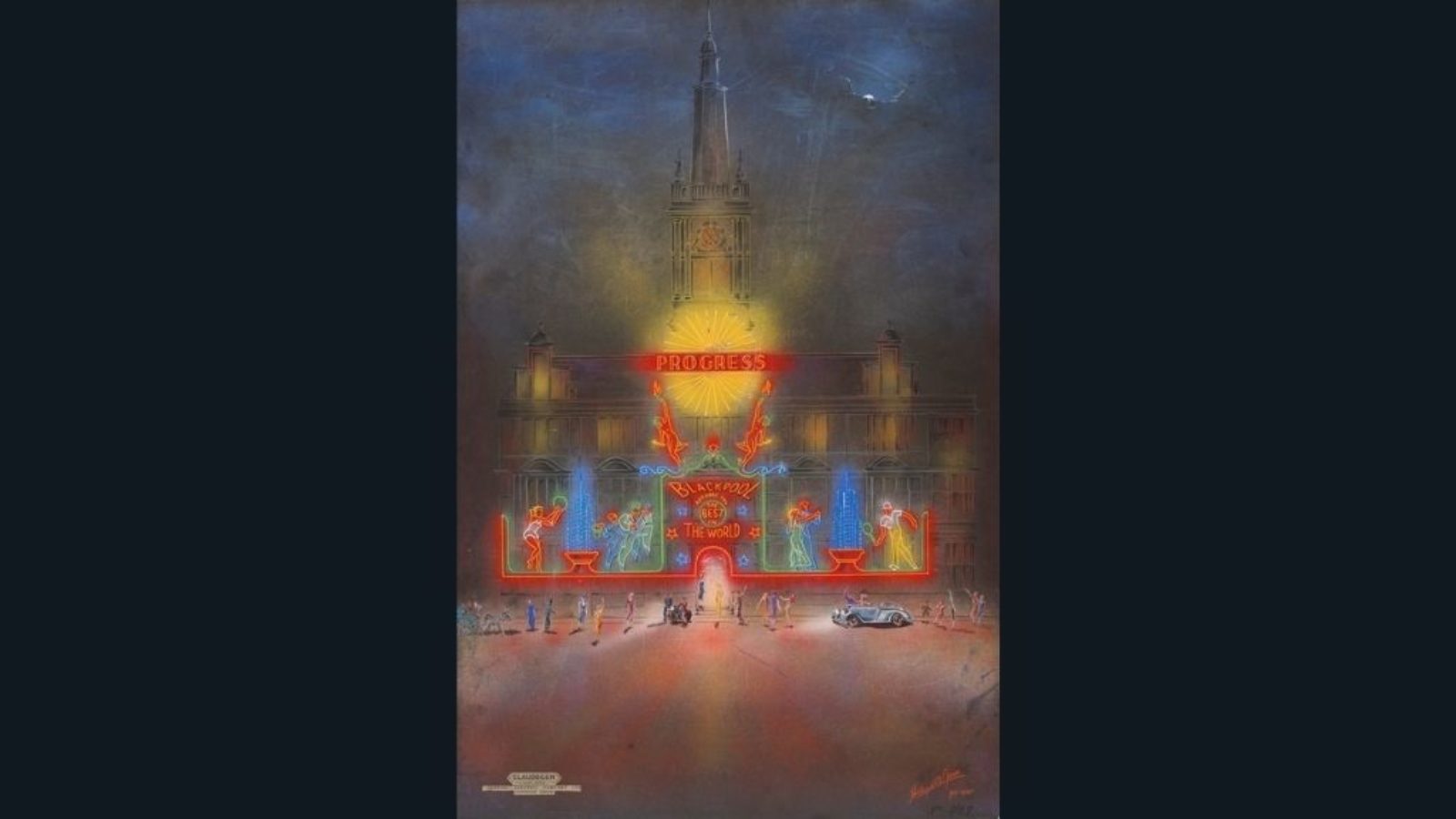By John Ramsbottom

Recently I had the pleasure of meeting Caroline Hall, whose official job title is Collections Manager for Blackpool Council, to discuss her mammoth task of caring for and documenting the various collections held by the Council and making them accessible to the general public.
I asked Caroline to share a bit about her background and how she landed this great job. Caroline’s family are from Blackpool, and on finishing her Masters of Arts in Heritage Management she returned home. Between then and now she has worked with collections under several different job titles. As Events Manager for the Admission All Classes Project she worked with Professor Vanessa Toulmin and the National Fairground Archive in delivering a programme of events including a recreation of sideshows in the pavilion theatre, a variety show at the Grand Theatre and the first Carnival Ball in the Tower Ballroom as part of Showzam.
Caroline smiles as she recalls a fond memory, behind the scenes, amidst the mayhem whilst preparing for the curtain to go up, one of the performers, a rather large bearded man, ran out of his dressing room in his shorts holding up a pair of leather lederhosen. “Do you have a needle that will go through leather?”, “Not on me!” Caroline replied. At which point he demonstrated his problem by showing the giant hole in the seat of the clothing. The gentleman in question just had to wear his shorts in the end but his facial expression remains firmly within her mind.

Following Showzam Caroline went to Keswick Museum and Art Gallery applied for funding to the Heritage Lottery Fund for £1.8million, to save the museum from closure which was successful. The museum has recently won small Visitor Attraction of the year at Cumbria Tourism Awards.
Caroline’s current post was originally funded by the John Ellerman Foundation who saw Blackpool’s collections as important enough to deserve specialist advice and care. Caroline supports the care of the Grundy Art Gallery Collection, Cyril Critchlow, Illuminations, Tourism, Tower Company and Local History Collections. The collections come from various places and have built up over time. What this means, Caroline tells me, is that Blackpool has an important and unique record of the history of the town and of popular culture. One of her favourite items is a small collection held by the Local History Centre of censored Blackpool postcards. What makes it fascinating is the choice the censors made of which postcards to let through and which to ban.
Her job may appear dull to most people but Caroline is passionate about it.
“These collections belong to the public and they should be able to access them, but how can they if they do not know what they contain?”

Her task over the next two years is to work with volunteers to find out. By creating an inventory of all the collections, those lists can then be published online and people will able to discover exactly what they have at their fingertips but it is a laborious process, going through each item and recording the details of each one. Everyone loves seeing collections on line when they go on museum websites but in order to do that, someone first had to sit down, list, document and digitize them and that is the process Caroline is underway with.
For Caroline the most exciting future for the collections is the Blackpool Museum Project. A museum means that people will be able to see the collections, explore and browse the history of the town. It will also showcase to the rest of the country what a wonderful array of collections we have that reflect Blackpool’s incredible past.
